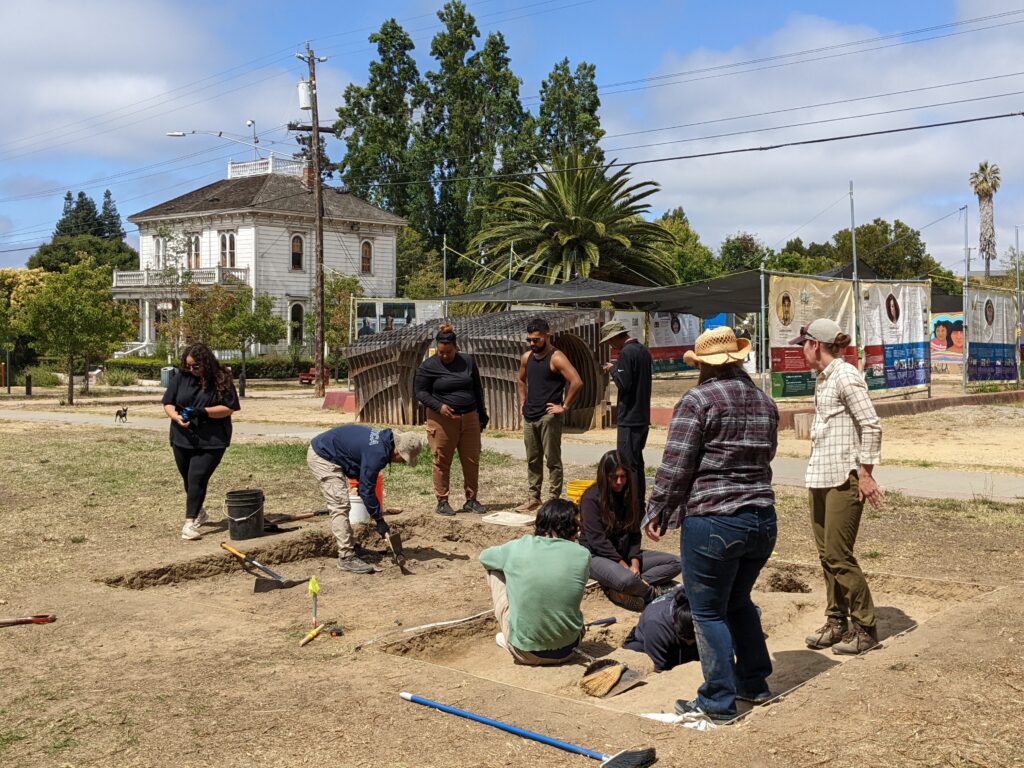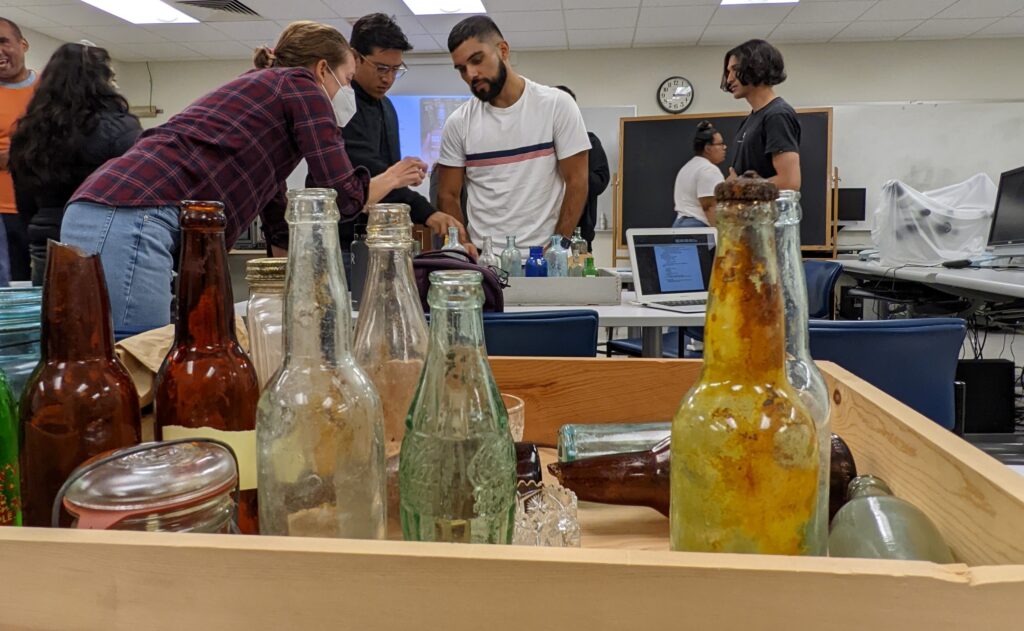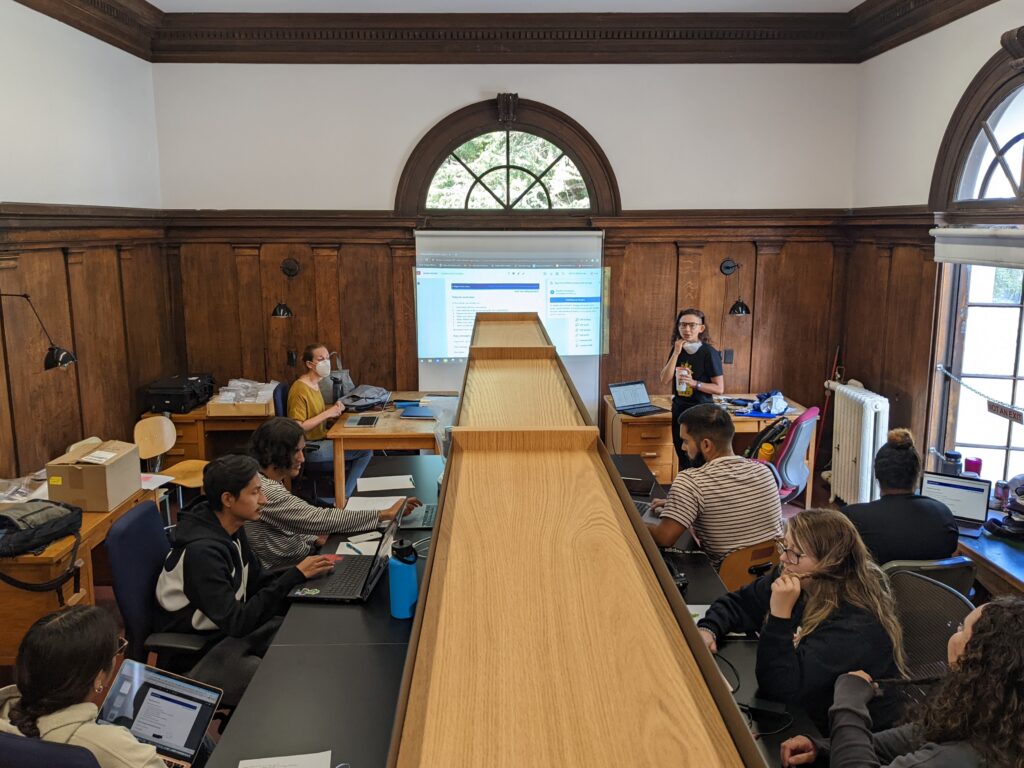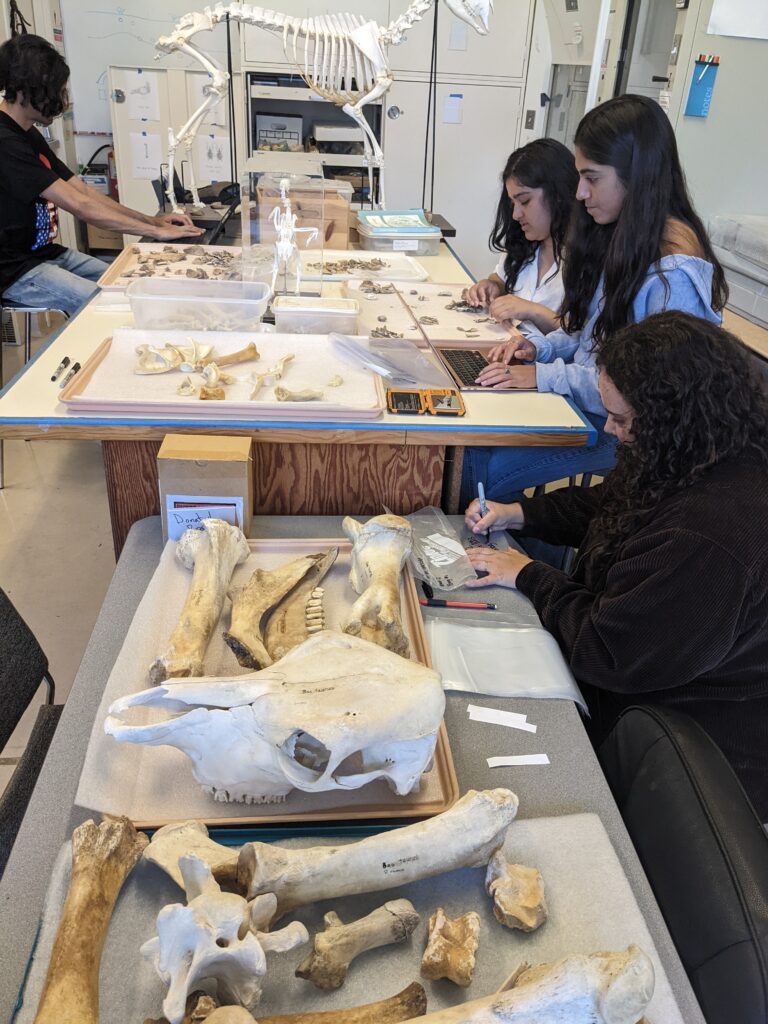Global Initiatives Grant Report – Inclusivity and Ethics in Archaeological Training: The ARF Field School

The Archaeological Research Facility (ARF) Field School is a new program designed to expand the number and diversity of people pursuing archaeological careers by providing archaeological training for students underrepresented in the discipline. Most archaeological field school opportunities are located far away and are costly, making the necessary training they provide inaccessible to many students. The ARF’s field school follows a different model, providing this training as a commuter-based program and offering stipends to student participants.
The 2022 Field School
A Global Initiatives Grant from the Wenner-Gren Foundation provided funds to support seven of the ten student participants in the pilot field school, which took place during the summer of 2022. Students were selected through a competitive application process. The cohort included advanced undergraduate students from UC Berkeley, San Francisco State University, UC Davis, Cal State East Bay, and Santa Clara University. Student participants received training both in field methods and non-destructive recording methods, and took intensive workshops on mapping, artifact analysis, digital documentation, writing, and presentation—key skills for careers in archaeology and other fields that require collaborative, information-intensive work.

Half of the six-week program took place at the Peralta Hacienda Historic Park in the Fruitvale neighborhood of Oakland, CA, where student participants learned how to conduct archaeological survey, mapping, photography (including 3D scanning), and excavation. The students especially valued how the program combined scientific investigation with community engagement. Every day, the ARF team hosted visitors from the local community, ranging from elementary school kids at day camp to older neighbors who shared their stories about growing up in the area. The Field School students especially enjoyed sharing what they were finding in the ground with people who had connections with the neighborhood. Thus, in addition to learning the technical aspects of archaeology, the students became ambassadors for the discipline in the local community.
The other half of the program took place on the UC Berkeley campus at the ARF and in laboratories in the Anthropology department. One week of workshops focused on various artifact classes such as animal bones, glass, ceramics, lithics, and plants remains. Training from faculty and graduate student specialists, students learned methodological approaches for each class of material and how to design a data entry system for different artifacts and ecofacts, maintain consistency in data entry, analyze the resulting dataset, and integrate results with other data sets. Student participants chose a particular class of material to study in more depth and presented results to each other and local communities. The Field School team processed, analyzed, and reported on all the material they excavated during the 2022 program.
Throughout the six-week program, the ARF Field School hosted lectures by archaeologists from UC Berkeley and other Bay Area universities, cultural resource management firms and public agencies, and independent non-profit organizations. These visits provided students with exposure to a variety of career pathways for archaeology.
A Different Approach to Archaeological Training
The ARF Field School provides experience with all aspects of archaeological investigation—from project development, equipment training and field excavation to artifact analysis and report writing. This makes it stand out from many other field schools, especially those that take place outside the United States, which focus on excavation and cultural experiences but do not have time for post-excavation artifact analysis or report writing. These latter skills often can only be gained through additional post-excavation weeks on the same project, requiring even more volunteered time and expenses. The ability to demonstrate writing skills is cited as a key criterion that graduate programs and employers, such as CRM companies and government agencies, seek in applicants for archaeological positions. Finally, exposure to humanities and social science perspectives together with collaborative data management, analytic, and writing skills, will increase pathways to Ph.D. completion and help prepare students for academic careers.

The ARF Field School addressed three of the capacity-building action items the Society of Black Archaeologists and colleagues defined in a working resource list that emerged from the June 2020 panel discussion “Archaeology in the Time of Black Lives Matter” (page 15 in this PDF – https://tinyurl.com/3pzfz2mk): (1) to find ways to offer payment or course credit for internships; (2) to shift what counts as an acceptable field school and forge partnerships with local schools and institutions; and (3) to create opportunities to foster a sense of ownership in research. Participant stipends made the ARF Field School more accessible and feasible as summer employment, providing critical training that will help expand opportunities for underrepresented minorities in the academic pathway. The program’s focus on local material culture and partnering with a historical park in Oakland helped students gain experience with excavation, analysis, and interpretation, while also having the opportunity to connect with local community members, as well as Bay Area faculty and other archaeology professionals. The program provided the essential skills and training required for careers in archaeology, while augmenting those with analysis, report writing, and public outreach. These latter three aspects of the field school are areas that traditional field schools do not normally cover due to a lack of time or personnel.

The 2023 field school accomplished what we had hoped for. Given the success of this pilot program and the clear demand of this approach to archaeological training, we are working to raise funds for another field school in 2024.
Included with this post: (1) The Field School video: https://youtu.be/INJShhPiDg8 (2) The list of speakers for the 2022 program: http://arf.berkeley.edu/arf-field-school (3) Photos taken in the field and in the lab spaces